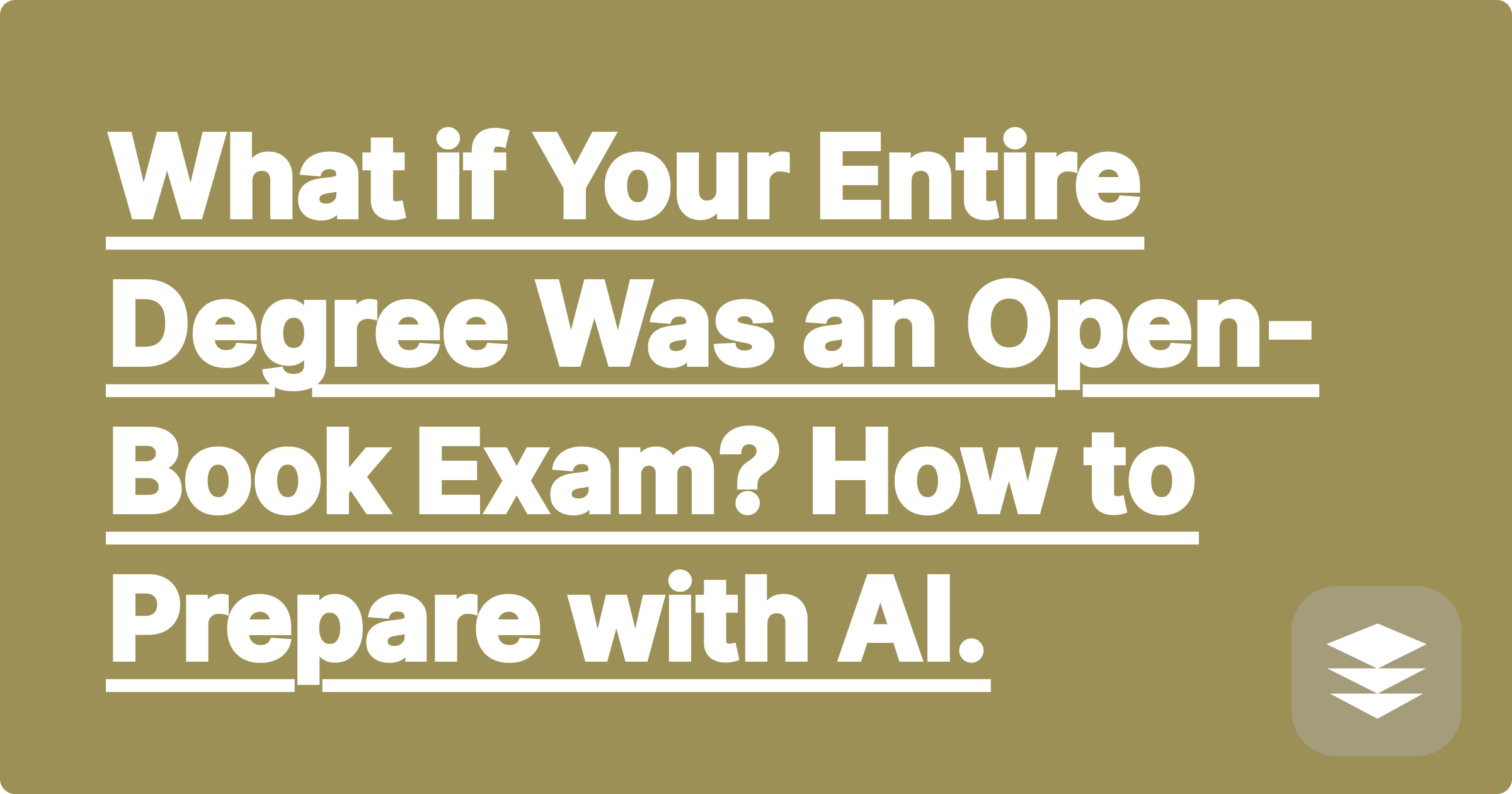
In traditional education, success is often measured by your ability to memorize information for a closed-book, timed exam. You cram, you take the test, and a week later, you've forgotten most of it. Then you graduate into the real world, where every "exam" is an open-book, open-internet test. Your success depends not on what you have memorized, but on your ability to quickly find, synthesize, and apply information to solve a novel problem. This requires a completely different skillset: lifelong learning skills.
The old model of education is "Just-in-Case" learning: memorizing a vast amount of information just in case you might need it someday. The modern model is "Just-in-Time" learning: having a system to find the exact knowledge you need, right when you need it. So, what if we treated our entire degree program like one long, open-book exam? How would we study differently? We would focus on building a personal knowledge management system, not on rote memorization.
An AI tool like GPAI Cheatsheet is the ultimate platform for building this system. It allows you to create a searchable, interconnected, and constantly evolving "second brain" that will serve you long after your final exams are over.
Your role shifts. You are no longer just a student taking notes. You are a curator of information.
[Image: An animation of a student's brain with glowing connections. Icons for different subjects (physics, math, coding) are fed into a GPAI Cheatsheet icon, which then becomes a larger, more organized "Second Brain" graphic. Alt-text: A student building a personal knowledge management system with AI.]
The real power of this system comes from its ability to connect ideas across different domains.
When you face a new problem at your internship or job, your workflow mimics the open-book exam strategy.
In a world where any fact can be looked up in seconds, the valuable skills are no longer about what you know. They are:
A: No. You still need to internalize the foundational concepts and "mental models" of your field so you know what to even search for. But you can offload the memorization of specific, detailed formulas and facts to your AI "second brain."
A: Google gives you access to all the information in the world. Your personal AI knowledge base gives you access to the information that is most important and relevant to you, in a format that you understand, curated from sources you trust (your own professors and textbooks). It's signal vs. noise.
Stop optimizing your brain for a broken system. Start building the lifelong learning skills that the real world demands. By treating your education as an open-book exam and using AI to build a powerful personal knowledge management system, you're not just preparing for your next test; you're preparing for a lifetime of success.
[Start building your second brain today. Use the GPAI Cheatsheet to organize your knowledge for the long term. Sign up for 100 free credits.]
What if Newton Had an AI? How 'Principia Mathematica' Could Be Written in a Week
Could You Run a Simulated Mars Colony Using an Engineering AI Solver?
Teach Me Poker': Can Game Theory AI Explain Winning Strategies?
What if Your Entire Degree Was an Open-Book Exam? How to Prepare with AI.
Re-writing History: What if the Titanic Was Designed with FEA and AI?
The Psychology of the 'Humanizer': Why We Trust 'Natural' Language More
A Day in the Life of a GPAI Engineer: The Problems We Solve for You
We Fed Our AI the Toughest 'Unsolvable' Math Problems. Here's What It Did.
The Carbon Footprint of Your Brain vs. AI: An Energy Efficiency Comparison
Bad Handwriting' Hall of Fame: Can Our AI Read Your Professor's Scrawl?